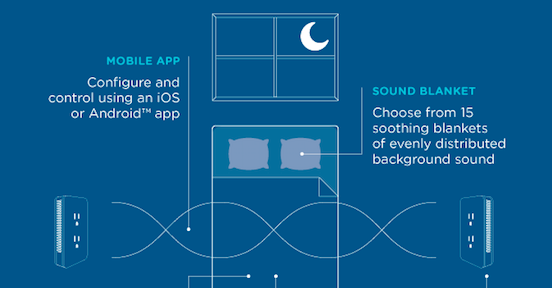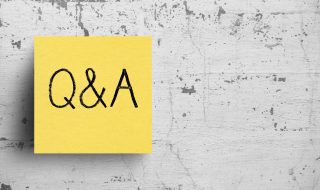
Look, we’re not here to tell you what to do with your life. But we are here to tell you that IoT devices can be bad for your health. They can cause eyestrain, sleep deprivation, obesity, and addiction. So if you’re using IoT devices all over the place, be aware of the risks and take steps to mitigate them.
Here is a breakdown of some of those potential negative impacts:
- ** Eyestrain:** Using IoT devices such as smartphones and tablets for extended periods of time can lead to eyestrain. This is because the devices emit blue light, which can damage the retina.
- ** Sleep deprivation:** The blue light emitted by IoT devices can also interfere with sleep. This is because blue light suppresses the production of melatonin, a hormone that helps regulate sleep.
- ** Obesity:** IoT devices can be used to play games, watch videos, and surf the internet, all of which are sedentary activities that can contribute to obesity.
- ** Addiction:** IoT devices can be addictive, especially for people who are prone to addiction. This is because they provide instant gratification and can be used to escape from reality.
Here are a few things you can do to reduce your risk of developing health problems from IoT devices:
- Limit your use of IoT devices, especially before bed.
- Take breaks every 20-30 minutes when using IoT devices.
- Get regular exercise and eat a healthy diet.
- Get enough sleep.
- If you find yourself becoming addicted to IoT devices, seek help from a therapist or counselor.
IoT devices can be a great way to stay connected with friends and family, learn new things, and have fun. But it’s important to use them in moderation and to be aware of the potential risks.
The world we all live in is becoming increasingly connected. Nearly every household object has a “smart” version available. There are smart refrigerators, toasters, even pitchers for water. All of these have extra purposes that can only be achieved through their technology, many of which aim to improve your health.
If used correctly, many IoT devices can have a huge benefit to your health. Whether you are looking to lose weight, get more energy, stay fit, or recover from a major health problem, the IoT can help you out.
Losing Weight through Diet and Exercise

5 Tips to Stay Healthy If You Sit at a Computer All Day
Dieting is a pretty difficult lifestyle choice, and exercising is equally hard. Why eat vegetables and run a few miles when you could just snack on chips and binge watch “Friends”? Finding motivation or seeing results for living a healthy lifestyle can be hard at times, but the IoT can help keep you motivated.
The first and most common devices for this are FitBits and smartwatches. These track your heartrate, follow your workout, predict how many calories you burned, even know how many steps you’ve taken in a day. These take that information and put it together into a neat report for you. That way you can see instant results from a hard workout and give you a sense of pride for your efforts.
Many gyms are also getting smart exercise machines that can help their users track their performance and where they can improve. The workout is then transmitted to their device or gym account detailing out the workout with similar data to a FitBit. They can also adapt a workout while it’s happening to what you need and your current performance.
There’s also plenty of IoT tools to help with dieting too. Tons of apps designed to log your calories are available, but nobody wants to take the time out of their day to input what they ate. So instead, there is a host of IoT products to help. IoT utensils (yes there are smart forks, can you believe it?) can track how many bites you took and encourages you to eat slowly so you consume less food. Smart plates and frying pans can measure how much food you have, what kind of food it is, how many calories it has, and even tell you how many calories you have left to eat in the day. Basically, these act like having your very own nutritionist.
Getting Better Sleep

How IoT is fixing America’s sleep problem
Sleep is a key part to a healthy life, and one third of all adults aren’t getting enough. Not having enough sleep can lead to weight gain, mental illnesses, heart disease, and more. It should be something everybody works on improving, and IoT devices can help.
Many apps for smartphones can pair up with smartwatches and fitbits to monitor your sleep patterns, including how long you actually sleep for, how restful your sleep is, even track your REM cycles.
If you want to learn more about your sleeping patterns there are smart beds and pads to better track your movements. This can include a full mattress or just a pad that goes under the cover that track how you sleep. This can include which positions you get the best sleep, times that you often wake up, and even track optimal temperatures for sleep.
Improvements to Healthcare

Using Technology to Improve Rural Health Care
With all of the different ways to monitor our bodies, it makes sense that healthcare is interested in it. Combining IoT devices with the latest advances in healthcare technology can let doctors closely monitor specific patients while they are out living life. This can include keeping an eye on their heart rate, blood pressure, glucose levels, and pretty much anything else.
What’s amazing is that doctors can set up alerts for warning signs in patients to help predict future problems. That means the could possible predict things like heart attacks or developing problems.
It Still Takes Work to be Healthy
![]()
SCIENCE SAYS FITNESS TRACKERS DON’T WORK. WEAR ONE ANYWAY
IoT devices, especially those designed to improve health, help monitor and make suggestions, but you need to do the work. A FitBit tracks your efforts, but you still need to get off the couch and work. The devices can give suggestions on the best workouts, but you need to make the decision on what you’ll do and then do it. IoT devices can allow you to work smarter, but you still have to do the work.




